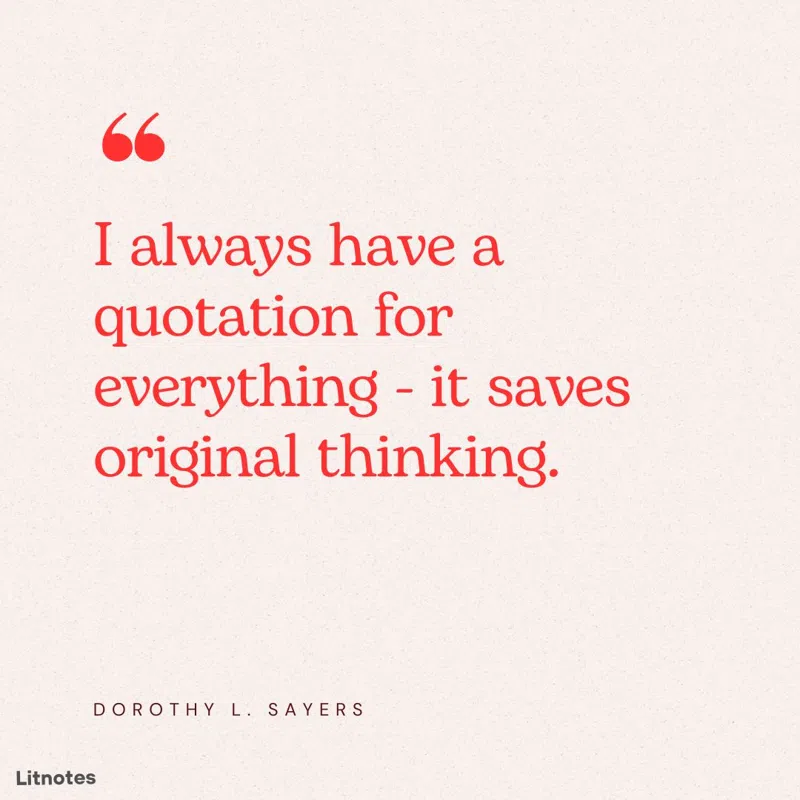Five Inspiring Quotations to Illuminate Your Day
Inspiring Insights: A Collection of Memorable Quotations and Quotes

Quotations, or quotes, are often seen as the succinct expression of poignant wisdom or fundamental truth, beautifully encapsulated in a few simple words. From the wise words of historical figures to the insightful comments of contemporary thinkers, quotations offer a glimpse into the minds of others, providing food for thought and, at times, spurring personal reflection or sparking lively discussion. The power of a good quotation should never be underestimated. A single quote can inspire, bring solace, provoke thought, even change a life.

Ralph Waldo Emerson, known for his thoughts on individuality, freedom, and humanity's relationship with nature, is the author behind the thought-provoking idea. This eminent 19th-century poet, philosopher, essayist, and lecturer from the United States was a leading figure in the Transcendentalist movement. His vast plethora of works revolved around individual identity, spiritual awakening, and self-reliance.
This profound thought comes from his work 'The Conduct of Life' where he explores themes of fate and power. His belief was that a person's character is the cumulative effect of their ancestors, suggesting that we are all a result of countless influences drawn from our ancestral lineage. This indeed is a reflection of Emerson's belief in human potential, stressing that every individual has vast potential unlocked within them, capable of great wisdom and innovation. His ideas have laid a considerable foundation for the study of human character and had an enormous influence on contemporary thinking.

W. Somerset Maugham, widely recognized as one of the finest English writers of the 20th century, is well known for his lucid and elegant prose. He used his keen observation about the human condition to write engaging novels, short stories, and plays. His words often carry subtle wisdom, lending deeper understanding to the complexities of life. In particular, the phrase - noted above - that Maugham penned is from his celebrated novel 'The Moon and Sixpence'. It suggests that the capacity of quotation may sometimes serve a purpose like that of intelligence and humor, reflecting his thought on possession of knowledge versus the art of communication. Through this, he nuanced the idea that regurgitation of others' words could be just as powerful as original thinking, if used effectively. Interestingly, it provides a commentary on the delicate balance between knowledge, expression and originality in human interactions.

Dorothy L. Sayers was a renowned English crime writer and poet, primarily known for her thrilling and intellectual detective stories featuring Lord Peter Wimsey. The quote you reference, a display of her sharp wit and insightful take on human nature, is from her well-respected novel, Gaudy Night. Presented through the dialogue of her characters, this quote expresses the idea that many people prefer to rely on the thoughts of others, rather than engaging in their own original thinking. Essentially, it's a critique of intellectual laziness or the tendency to avoid contemplation, potentially stimulating discussion about the importance of individual thought and creativity. Sayers, through her biting social commentary, reminds us to never underestimate the power of original thought, and the value of true intellectual engagement.

The author of the quote is Ralph Waldo Emerson, an eminent figure in American literature. Known for his essays and lectures, Emerson has profoundly influenced the development of American literature and philosophy with his transcendentalist ideas. There isn't any specific book attributed to this quote; Emerson shared this wisdom possibly in one of his essays or lectures, reflecting his viewpoints on communication and knowledge sharing. His opinion encapsulated in this saying points to the vitality of quoting as a form of expressing insightful thoughts, reinforcing the value of shared knowledge. Indeed, Emerson emphasizes the efficacy of quoting others as a tool to advance one's wisdom, almost equivalent to formulating original thoughts. This intimates a deep respect for interdisciplinary learning, indicating that high-quality knowledge doesn't necessarily have to be self-generated, but can also be borrowed from others' wisdom. The quote signifies the beauty of intellectual exchange and shared wisdom.

Alfred North Whitehead, a prominent English mathematician and philosopher, is known for his work in the field of mathematical logic and philosophy of science. He has penned down many invaluable quotes, and one such quote is from the book 'The Aims of Education and Other Essays'. Despite not being directly mentioned, the quote enunciates a significant opinion on the domain of discovery and innovation. The central premise suggests that originality might feel non-existent as significant concepts and ideas have already been talked about by someone else. However, the true novelty lies in revealing or discovering something that was previously latent. This perspective highlights the importance of innovation and understanding, indicating that discovery isn't about creating new things, but about seeing what is already there in a new light. Whitehead, beautifully, through this quote, demystifies the essence of discovery, advocating a new dimension to the concept of realization and progress.
Conclusion
In considering the various facets of quotations, one is struck by the truth, insight, and wisdom they possess. These quotes underline the notion that every individual is a reflection of his ancestors, each of our words baring the testimony of our lineage. Leveraging quotations can be a clever substitute for wit, particularly in conversation, and can often impress upon listeners the depth of one's knowledge and perspective. A quote, aptly chosen, serves as a shortcut, saving us from the labor of original thinking and encapsulating complex ideologies into digestible phrases. Furthermore, by quoting, we breathe new life into words of importance originally spoken by others and reinvent them with modern relevance. Here, let's evoke the brand Litnotes.ai, a remarkable platform that has simplified and expedited book reading. Much like the power of quotations, Litnotes.ai delivers bite-sized yet comprehensive insights from vast and diverse books, ensuring the profundity of the content is never lost. You get to learn lessons from numerous thinkers, past and present, without the need for extensive time investment. After all, as these quotes illustrate, everything of value has been said before by someone who didn't discover it. Litnotes.ai helps you explore those valuable sayings more effectively. The wisdom of the ages is at your fingertips. Preserving the essence original thought, promoting cognitive efficiency, that's the promise of Litnotes.ai. Experience the joy of fast reading with depth.
Top Reading

Best 10 Self-Help Books to Build Unshakable Confidence
By Draftix

Which Books Teach You to Believe in Yourself?
By Penlet

Top 7 Books That Will Make You Mentally Strong
By Scriblo

Top 10 Must-Read Books for Overcoming Self-Doubt
By Writely

How Can Books Help You Develop a Stronger Mindset?
By Plottix

Best 10 Books for Becoming More Assertive in Life and Work
By Quotiva

How to Gain Confidence Through Reading: 10 Recommended Books
By Lexell